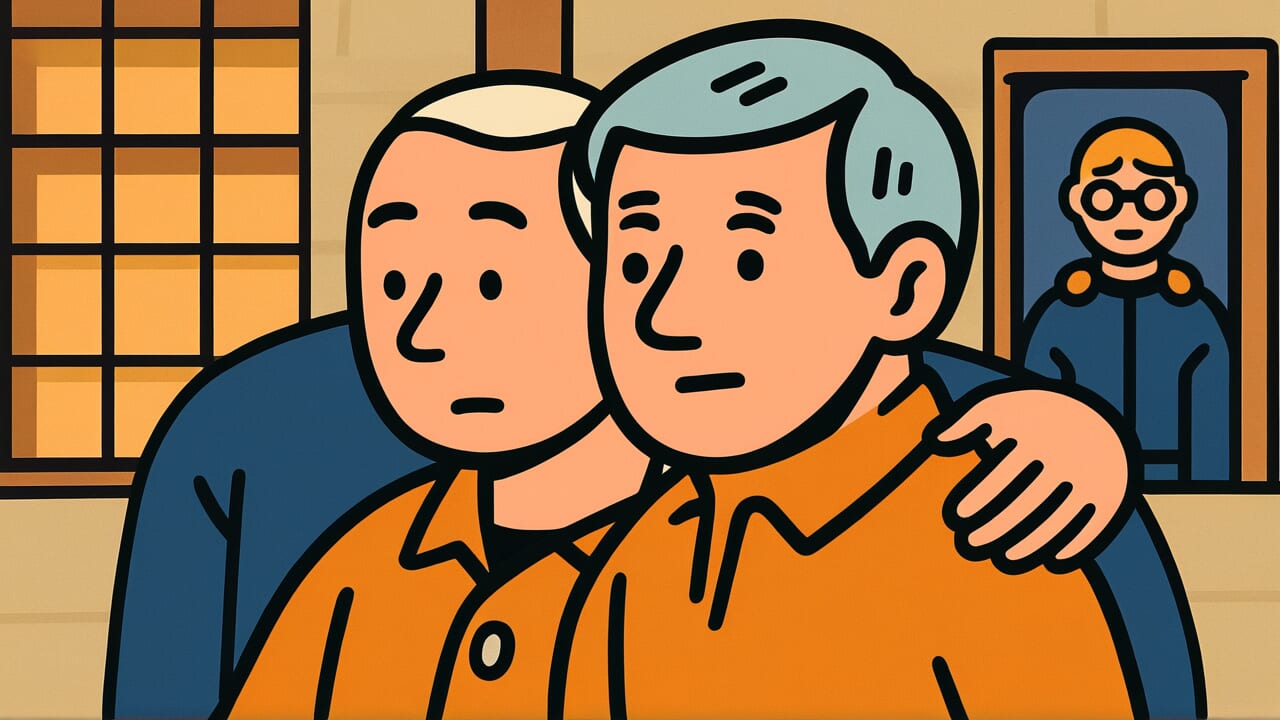How to Read “Old head on young shoulders”
Old head on young shoulders
[ohld hed on yuhng SHOHL-derz]
All words are common and easy to pronounce.
Meaning of “Old head on young shoulders”
Simply put, this proverb means a young person who shows unusual wisdom and good judgment for their age.
The phrase paints a clear picture. An “old head” represents wisdom and experience. “Young shoulders” represents youth and inexperience. When you put them together, you get someone special. This person thinks carefully before acting. They make smart choices that surprise adults.
We use this saying when young people act more mature than expected. A teenager who saves money instead of spending it all might earn this description. A student who thinks about consequences before making decisions shows an old head. These young people often become leaders among their friends. They give good advice and make thoughtful choices.
What makes this wisdom interesting is how rare it is. Most young people learn through mistakes and experience. That’s completely normal and healthy. But occasionally, someone seems to skip ahead in wisdom. They understand life lessons without having to learn them the hard way. People notice this quality because it stands out so clearly.
Origin and Etymology
The exact origin of this phrase is unknown, but it appears in English writing from several centuries ago. Early versions focused on the unusual combination of youth and wisdom. Writers used it to describe remarkable young people who impressed their elders. The saying captured something people had always noticed but needed words to describe.
During earlier times, wisdom was especially valued because life was harder and mistakes cost more. Young people who could think like experienced adults were precious to their communities. These individuals often became advisors or leaders despite their age. Society needed people who could make good decisions quickly.
The phrase spread through everyday conversation and written works. It remained popular because every generation discovers young people with this special quality. The basic idea never goes out of style. Parents, teachers, and employers still use these exact words to describe impressive young people they meet.
Interesting Facts
The phrase uses a body metaphor that was common in older English expressions. The head traditionally represented thinking and wisdom in many sayings. Shoulders represented strength and the ability to carry responsibility. Combining different body parts in one phrase created a memorable image that people could easily picture and remember.
Usage Examples
- Manager to colleague: “She’s only twenty-two but handled that crisis like a seasoned executive – Old head on young shoulders.”
- Coach to parent: “Your son made tactical decisions that impressed even veteran players – Old head on young shoulders.”
Universal Wisdom
This proverb reveals something fascinating about human development and the nature of wisdom itself. While most learning follows predictable patterns, some individuals seem to access deeper understanding without the usual prerequisites of time and experience. This phenomenon suggests that wisdom isn’t simply accumulated knowledge, but rather a particular way of processing and understanding the world.
The rarity of an “old head on young shoulders” highlights how most wisdom comes through trial and error. Humans typically learn by making mistakes, facing consequences, and adjusting their behavior accordingly. This process takes time and creates the connection between age and wisdom. However, some young people possess an intuitive understanding of cause and effect, an ability to see patterns, and a natural inclination toward long-term thinking that usually develops much later.
What makes this quality so valuable is its timing. Young people with old heads can make crucial life decisions during their formative years with unusual clarity. They often avoid the costly mistakes that derail their peers. This early wisdom creates advantages that compound over time, leading to better outcomes in education, relationships, and career choices. Yet this same quality can also create isolation, as these individuals may struggle to connect with age-matched peers who are following more typical developmental paths.
When AI Hears This
When young people show unusual wisdom, adults face a confusing problem. Their social systems expect certain knowledge to come with age. This creates awkward situations where experience-based authority gets challenged unexpectedly. Adults must choose between their assumptions and what they observe.
This tension reveals how deeply humans rely on predictable development patterns. Age-based hierarchies help organize society and distribute respect fairly. When someone skips ahead in wisdom, it threatens these careful arrangements. People feel unsure about how to treat someone exceptional.
The beauty lies in how humans handle this social puzzle. They created this specific phrase to acknowledge the disruption while celebrating it. This shows remarkable emotional intelligence about managing competing social needs. Humans found a way to honor wisdom while protecting their organizational systems.
Lessons for Today
Recognizing an old head on young shoulders requires looking beyond age to observe actual decision-making patterns. These individuals typically pause before reacting, consider multiple perspectives, and think about long-term consequences. They often ask thoughtful questions and seek advice from experienced people. Rather than rushing into situations, they gather information and weigh options carefully.
In relationships and group settings, people with this quality often become natural mediators and advisors. Others instinctively turn to them for guidance, even when they’re the youngest person present. However, this wisdom can sometimes feel burdensome. Young people with old heads may feel pressure to always make perfect decisions or to solve problems beyond their responsibility. They might also struggle with the normal experimentation and risk-taking that helps young people discover themselves.
For communities and families, nurturing rather than overwhelming these individuals creates the best outcomes. Their wisdom should be valued without placing unrealistic expectations on them. They still need time to grow, make some mistakes, and enjoy age-appropriate experiences. The goal is supporting their natural judgment while allowing them to develop normally in other areas. When balanced properly, an old head on young shoulders becomes a tremendous asset that benefits everyone around them.



Comments